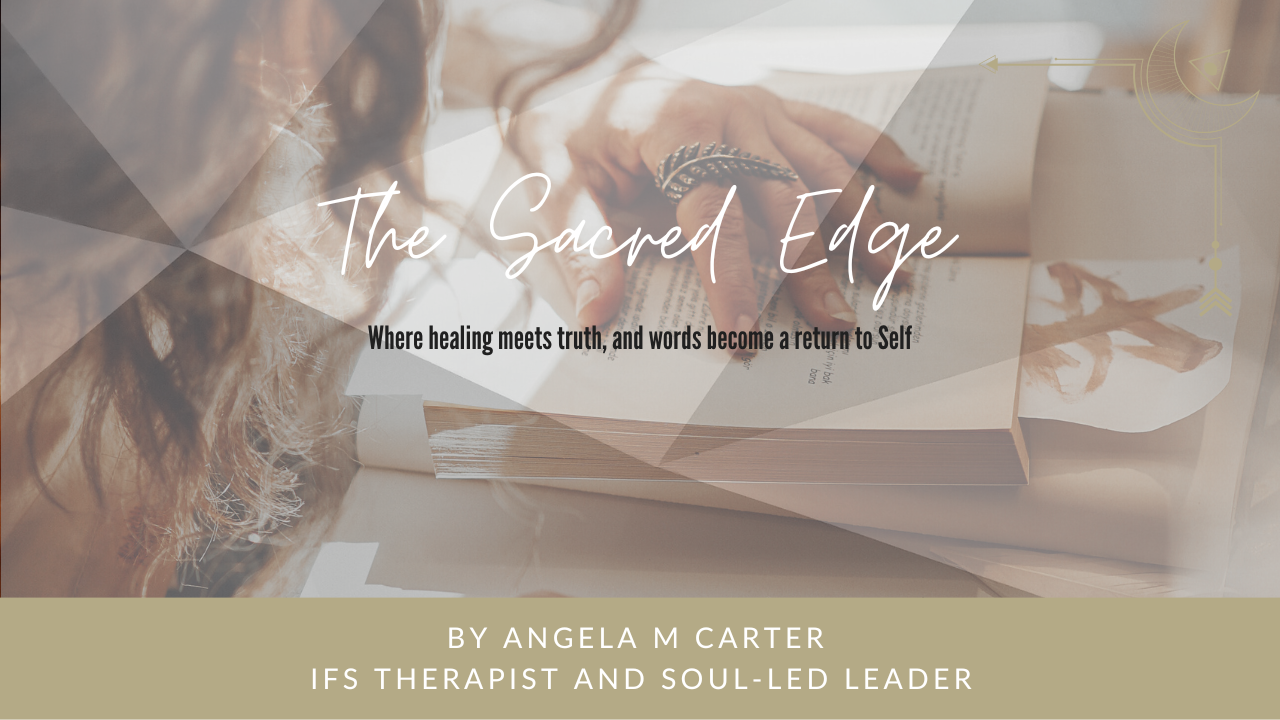Openness Becomes a Shield
Jul 07, 2025
A Confusing Act Of Responsibility
There is a pattern I have witnessed in many relational systems, both personally and professionally, and it often goes unnamed. It is the dynamic where one person, often the more emotionally attuned or therapeutically informed partner, brings openness, honesty, and vulnerability to a conversation. They take responsibility for their triggers, share their wounds, and speak from a place of insight and self-reflection.
While these qualities are central to emotional maturity and secure attachment, something concerning can happen when they are not met with the same level of responsibility from the other person. Instead of engaging in mutual repair, the partner may remain silent, offer surface-level empathy, or deflect entirely. The more self-aware partner is then left holding the emotional weight of the interaction.
This can create a relational imbalance where vulnerability is unintentionally used as a mechanism to avoid shared accountability. The term “emotional labour” is often used to describe the invisible work of tending to the emotional tone of a relationship, and in this case, it becomes disproportionate. According to the work of psychologist Dr. Brené Brown, vulnerability is the birthplace of connection, but it must be mutual to be sustainable. When it is one-sided, it can erode trust rather than build it.
From an Internal Family Systems (IFS) perspective, when one partner names and tends to their parts while the other withdraws or fails to reflect, the burden of healing becomes lopsided. The person who is more therapeutically skilled may inadvertently become the container for the other’s discomfort. Over time, this can reinforce internal beliefs of unworthiness or self-blame, particularly if there are exile parts within the system that already carry burdens of shame or rejection.
Research in the field of relational trauma, particularly the work of Dr. Janina Fisher, highlights how individuals who have experienced complex trauma often over-function in relationships as a survival strategy. They take ownership too quickly, apologise pre-emptively, and analyse their behaviours in an effort to maintain connection and safety. When these patterns go unrecognised, their healing can be misinterpreted as overreacting or being overly sensitive, when in fact they are demonstrating emotional insight.
Yet emotional insight without relational reciprocity is not healing, it is exhausting.
To be truly self-led is not to carry the whole relational field. It is to notice when openness is being met with silence, when vulnerability is being mistaken for responsibility, and when repair requires more than one nervous system.
Stephen Porges’ Polyvagal Theory reminds us that co-regulation is a biological imperative. We are wired to feel safe in the presence of attuned others. When one person consistently provides the attunement while the other avoids emotional engagement, the body begins to register the relationship as unsafe, even if no harm is being done explicitly. Emotional safety is not created through words alone; it is built through shared presence, mutual reflection, and the ability to say, “Yes, I see how I impacted you, and I am here to do the work too.”
Vulnerability is not a performance of strength. It is a brave offering of the inner world. It deserves to be held with care and mirrored by the same willingness to be honest, responsible, and engaged.
In IFS, we honour all parts, including the ones that wish to smooth things over, to avoid conflict, and to keep the peace. But we must also make space for the parts that say, “This is not mine to carry alone.” These parts often speak the deepest truth.
Being self-led in relationship means not only knowing your own system, but also discerning when your openness is being used to absolve someone else of their role. It means creating boundaries that protect your vulnerability from becoming a shield that others hide behind.
Healing is relational. It asks for both courage and humility. For those who offer vulnerability as a way forward, let it not become the reason the other person stops walking beside you.
In abundant love and kindness for all gentle souls,
Angela xox
IFS Therapist, Trauma Specialist, Advocate for Self-Leadership
References
-
Brown, B. (2012). Daring Greatly: How the Courage to Be Vulnerable Transforms the Way We Live, Love, Parent, and Lead. Gotham Books.
Brené Brown’s research on vulnerability and shame highlights the importance of mutual emotional risk-taking in relationships and how vulnerability builds trust—when it is honoured and reciprocated. -
Fisher, J. (2017). Healing the Fragmented Selves of Trauma Survivors: Overcoming Internal Self-Alienation. Routledge.
Janina Fisher explores the impact of complex trauma and how clients often over-function or over-own in relationships due to early adaptive survival strategies. -
Schwartz, R. C. (2021). No Bad Parts: Healing Trauma and Restoring Wholeness with the Internal Family Systems Model. Sounds True.
This book outlines the core concepts of IFS, including the role of protective parts and the need for balance in relationships between parts and Self-energy. -
Porges, S. W. (2011). The Polyvagal Theory: Neurophysiological Foundations of Emotions, Attachment, Communication, and Self-Regulation. W. W. Norton & Company.
Stephen Porges introduces the Polyvagal Theory, which supports the idea that co-regulation is essential for safety, connection, and relational healing. -
Hochschild, A. R. (1983). The Managed Heart: Commercialization of Human Feeling. University of California Press.
Although focused on workplace dynamics, Hochschild’s work on emotional labour applies to relational systems where one person consistently manages the emotional field. -
Siegel, D. J. (2010). The Mindful Therapist: A Clinician’s Guide to Mindsight and Neural Integration. W. W. Norton & Company.
Daniel Siegel provides insights into relational attunement and the role of neural integration in fostering emotional and interpersonal health.
Stay connected with news and updates!
Join our mailing list to receive the latest news and updates from our team.
Don't worry, your information will not be shared.
We hate SPAM. We will never sell your information, for any reason.

